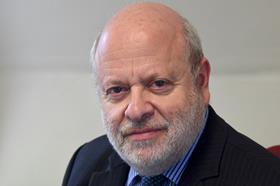In bad times, read history: you might feel better.

My anxiety about what terrible times we are living through was given a check by a book I recently read about the years before and after the outbreak of the First World War (‘Margot at War’, a very entertaining account by Anne de Courcy of the life of the wife of Prime Minister Asquith during those years).
Asquith was faced with impending civil war in Ireland because of the Home Rule Bill, growing attacks by the suffragettes - including against himself, by a thrown hatchet and an attempt with a dog-whip - and of course the outbreak of war in Europe. It makes our times look positively calm. (Asquith was a barrister, eventually ousted by the only solicitor prime minister, David Lloyd George.)
Yet another recent book, on the man whose collection became the foundation of the British Museum, Hans Sloane, revealed late 17th century England, just after the Restoration, as a place of Protestant-Catholic instability, leaving England an ‘unsettled and tottering nation’.
So, I try to breathe easily, despite terrible current wars, and the prospect of grave effects on our country.
One way that this will affect solicitors is already clear. Criminal justice may have been thrown some crumbs last week in the Chancellor’s spending review, and justice overall not treated as badly as feared, but defence was clearly a winner. Defence expenditure will continue rising, we hear that all the time, partly as a result of US attitudes towards NATO. Unless we experience unexpected growth, this will have a negative impact on justice, particularly civil justice. Things will get worse.
The human rights firm, Bindmans, showed a way forward last week. The idea of a law firm levy has been in the air for some years, fiercely resisted by many who complain that, since doctors do not have to fund the National Health Service, there is no reason why lawyers should fund their own sector.
Read more by Goldsmith
Bindmans have launched a voluntary levy through the use of 10% of their business clients’ fees. The money will go towards supporting access to justice for vulnerable people.
The second strong reason in the past for not wishing to go down this route was that it would let the government off the hook from having to provide a decent level of legal aid, whether civil or criminal. But if it is already clear, because of threatening external circumstances and the necessary rise in defence expenditure, that the money needed to raise legal aid levels to where they should be is not likely to be provided for the foreseeable future, this argument loses force.
So the choice offered is: we can either continue to live in our ruin, and see rich commercial clients receive the best service in the world while the rest get next-to-nothing, or we can begin to help clear up the ruin ourselves.
The Law Society has tried to address this through its 21st Century Justice project, with a range of proposals covering areas like legal expenses insurance and the unbundling of legal services.
Leaving war and its terrors alone for the moment, will the usual cliché about lawyers benefiting from bad times come true for some members of the profession?
It certainly appears to be so for some US lawyers. The New York Times reported last week that there is a lot of work for DC lawyers, with over 400 lawsuits against the Trump administration having been filed, mostly in the US capital. Law firms are besieged with work, and legal teams of non-profits have grown. In the hostile atmosphere for many establishment figures, ‘you don’t leave home without your lawyer’.
Not all law firms are quite so content, of course. Those which did a deal with President Trump are facing a steady drip of departures by unhappy partners and associates. It must be galling for them, too, that none of the successful challenges to the executive orders by the firms which went to court have been appealed.
And as part of the US context, the Florida state supreme court is not happy with the American Bar Association for becoming involved in ‘contentious policy debates’ (code, I think, for supporting the rule of law), and has asked the Florida Bar to withdraw its representatives from the ABA’s governing body, without giving the Florida Bar the opportunity to comment in advance on the request. The Florida state supreme court will be even less happy with the subsequent decision of the ABA to sue the government to stop the executive orders against law firms.
To return to war, and to remind us of its horrors, we have examples of its impact on solicitors in the pages of the Gazette itself. I commend this long article on the impact of the First World War on the many solicitors who served. The commonplace response is true: never again.
Like the years of Asquith’s government and, certainly, of the Restoration, these uncertain and threatening days will eventually be in the past, and will be very interesting to read about. But we have to live through them now, and take the right decisions in the present.
Jonathan Goldsmith is Law Society Council member for EU & International, chair of the Law Society’s Policy & Regulatory Affairs Committee and a member of its board. All views expressed are personal and are not made in his capacity as a Law Society Council member, nor on behalf of the Law Society































4 Readers' comments